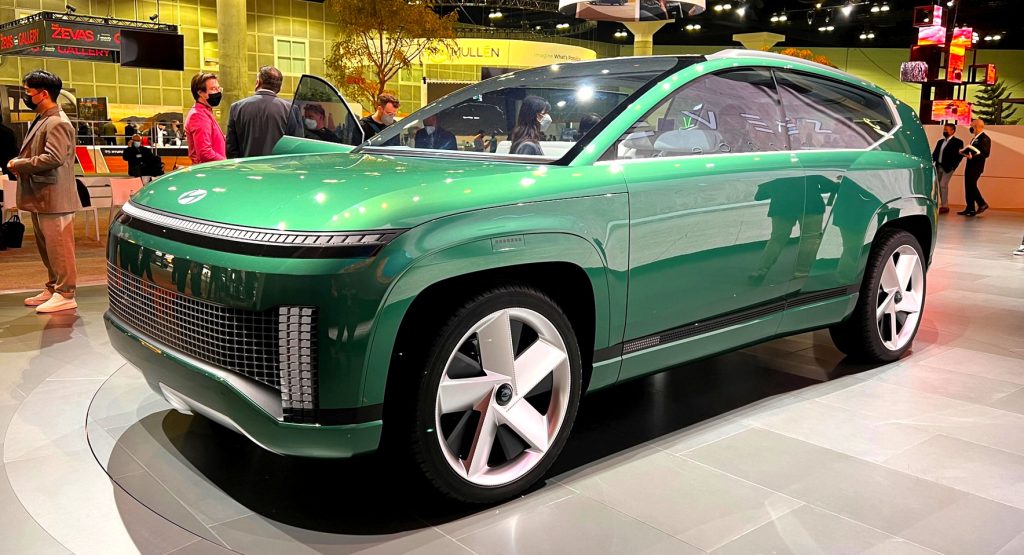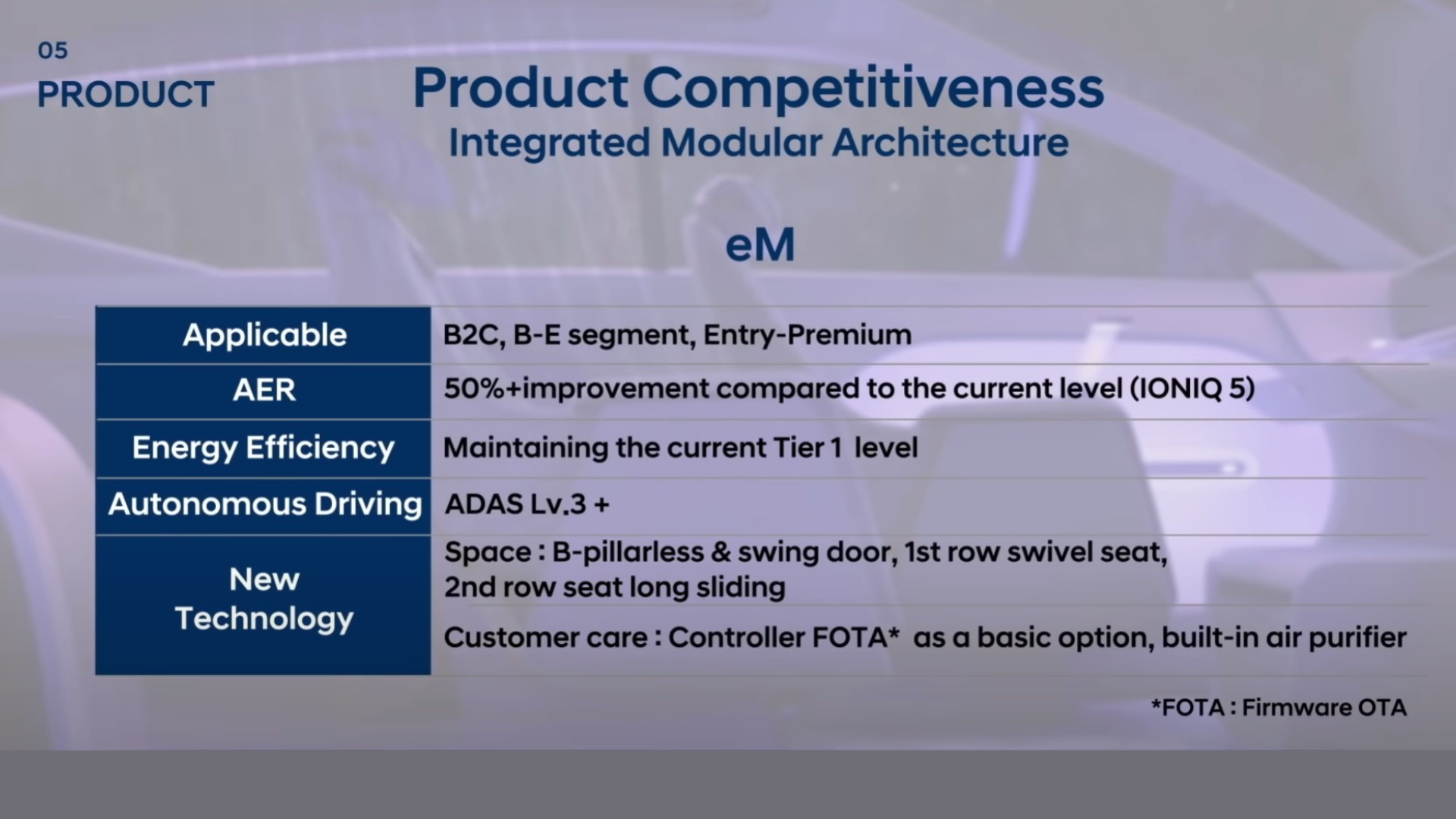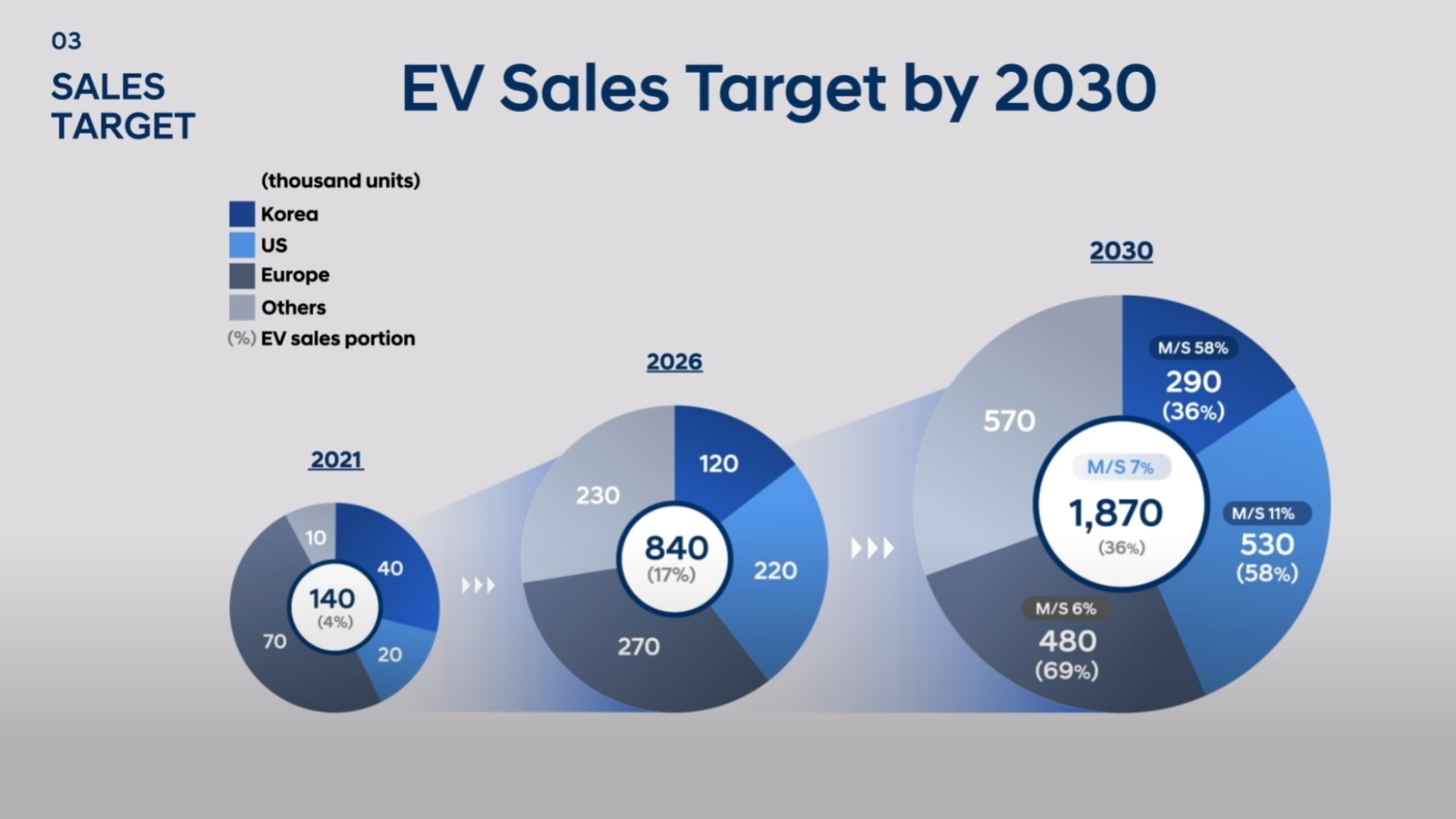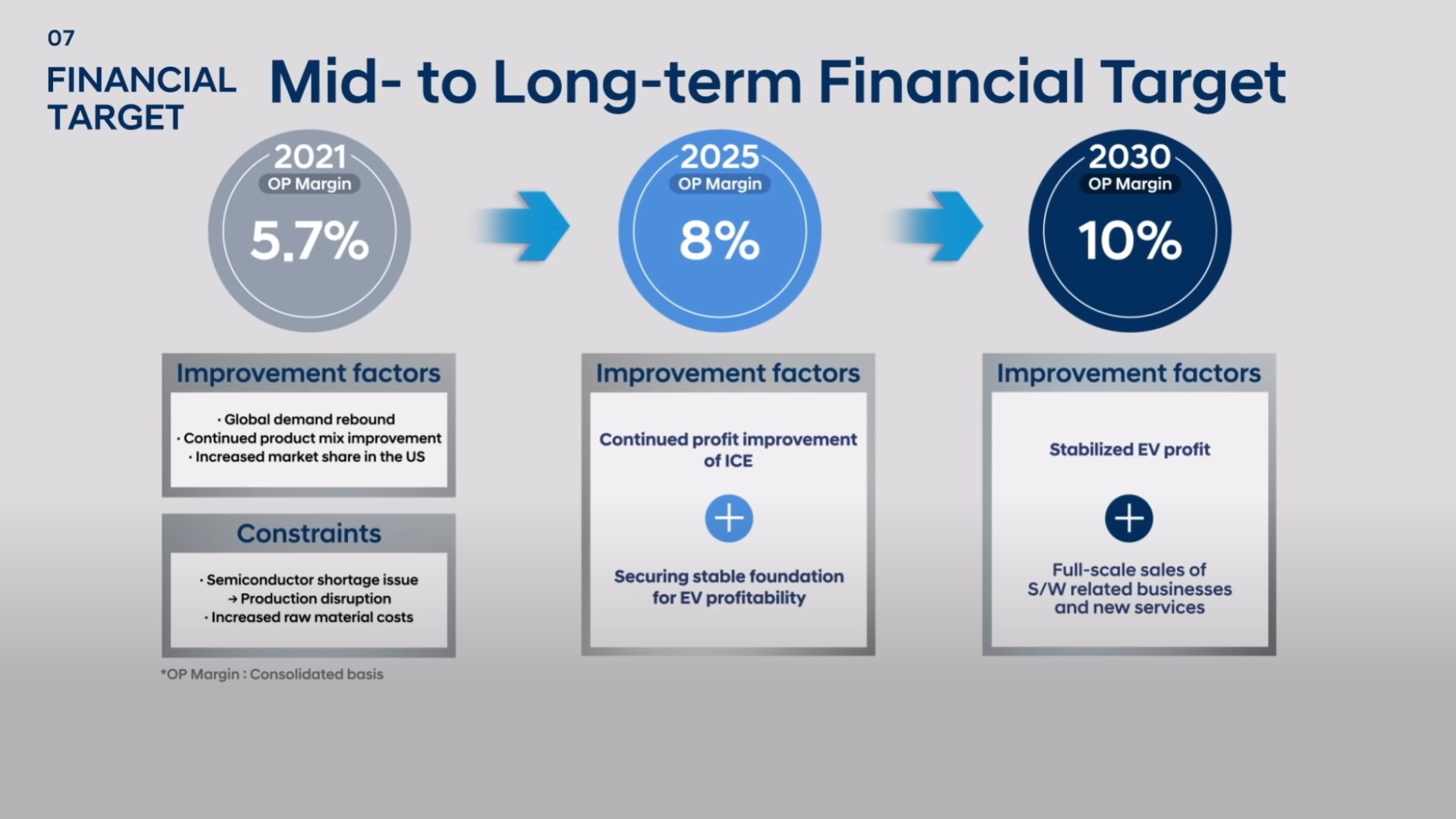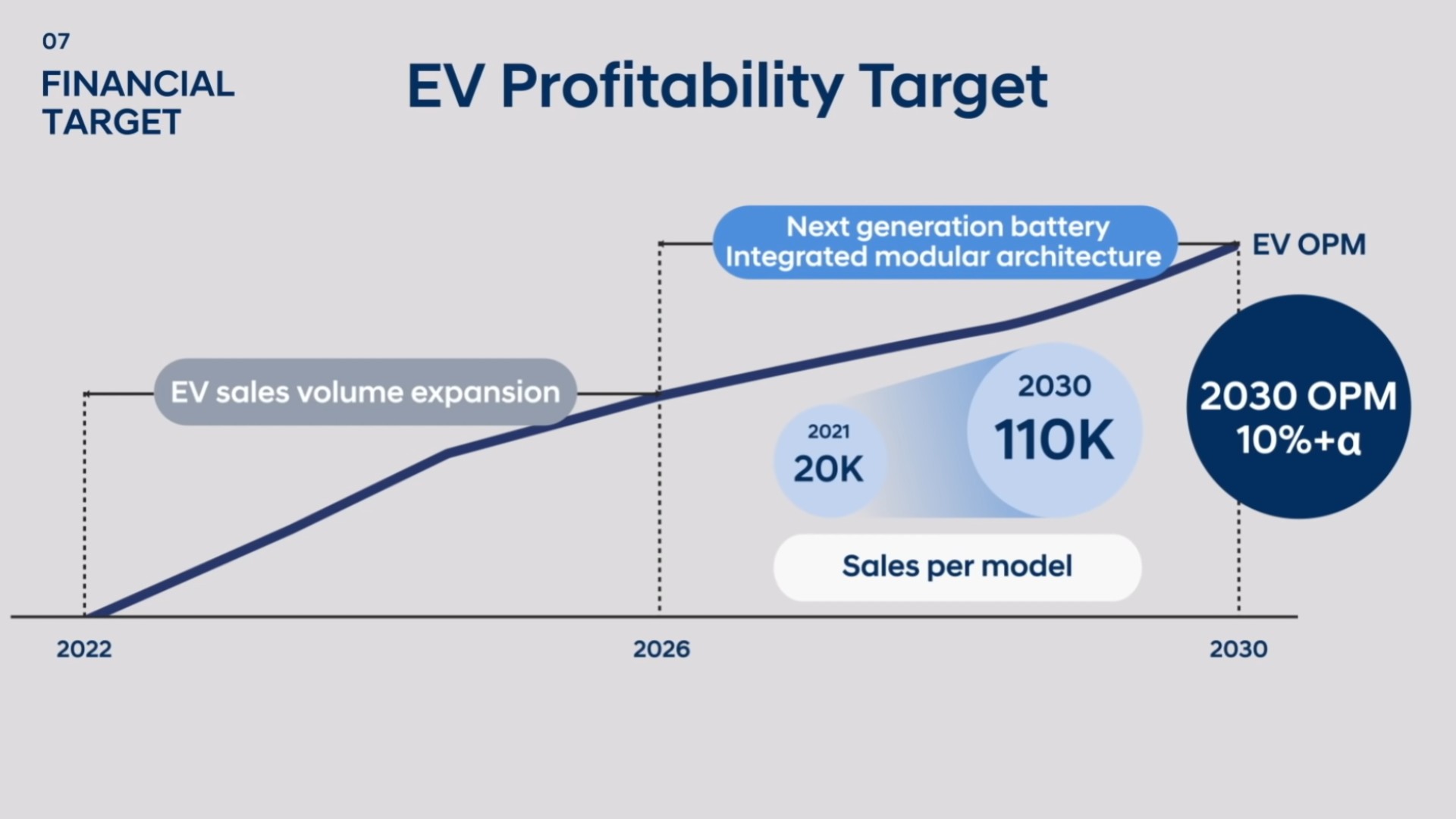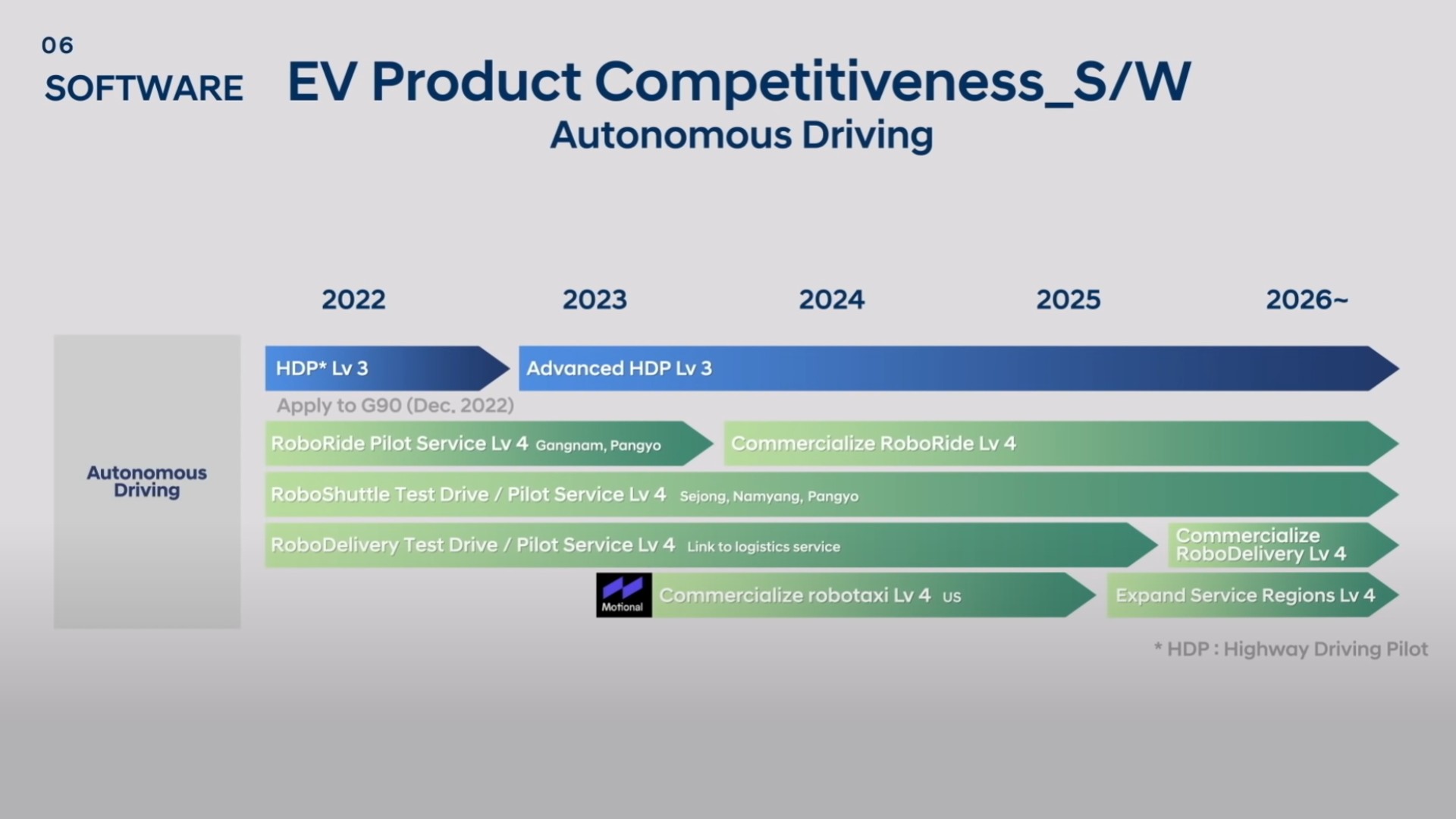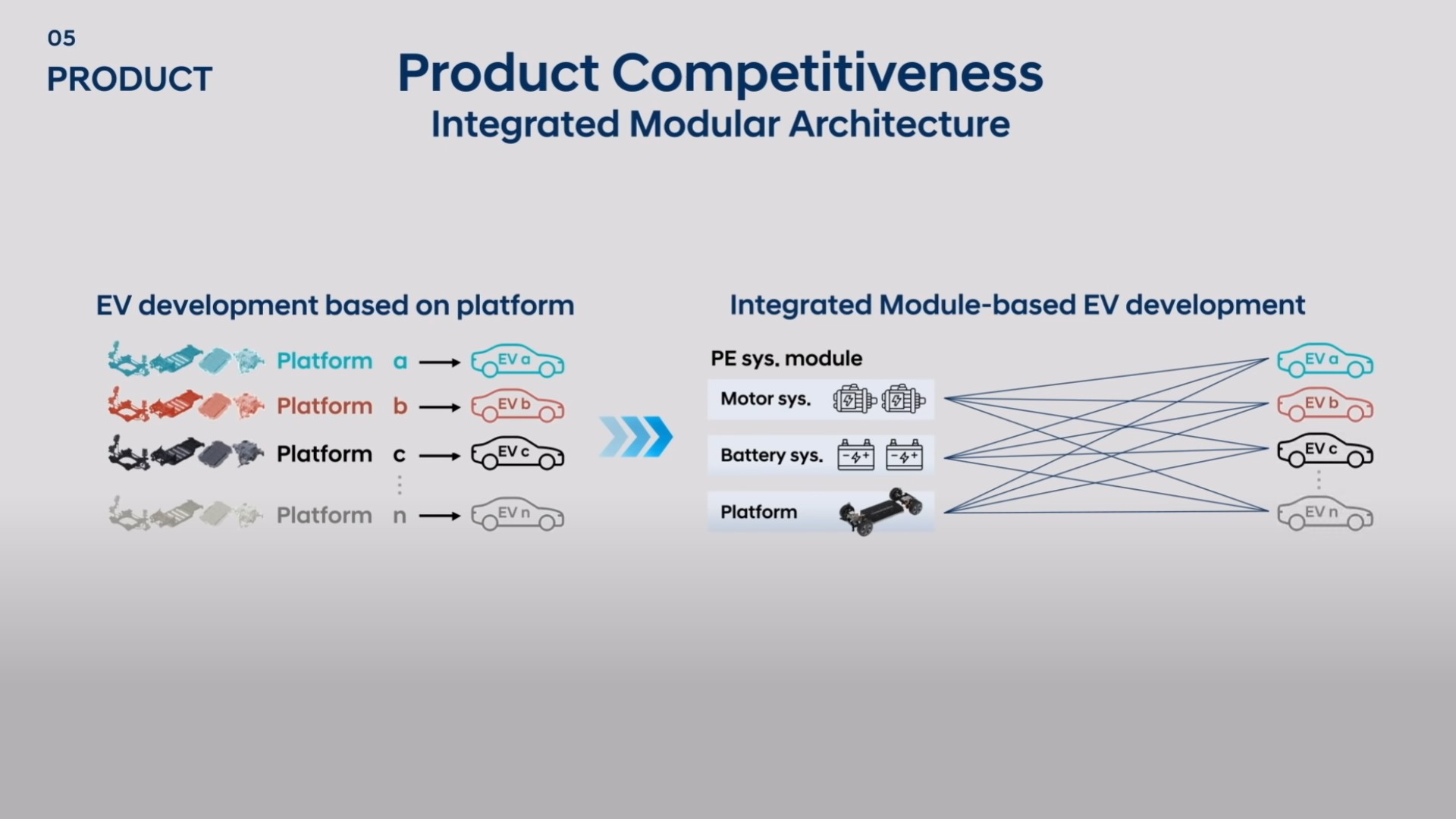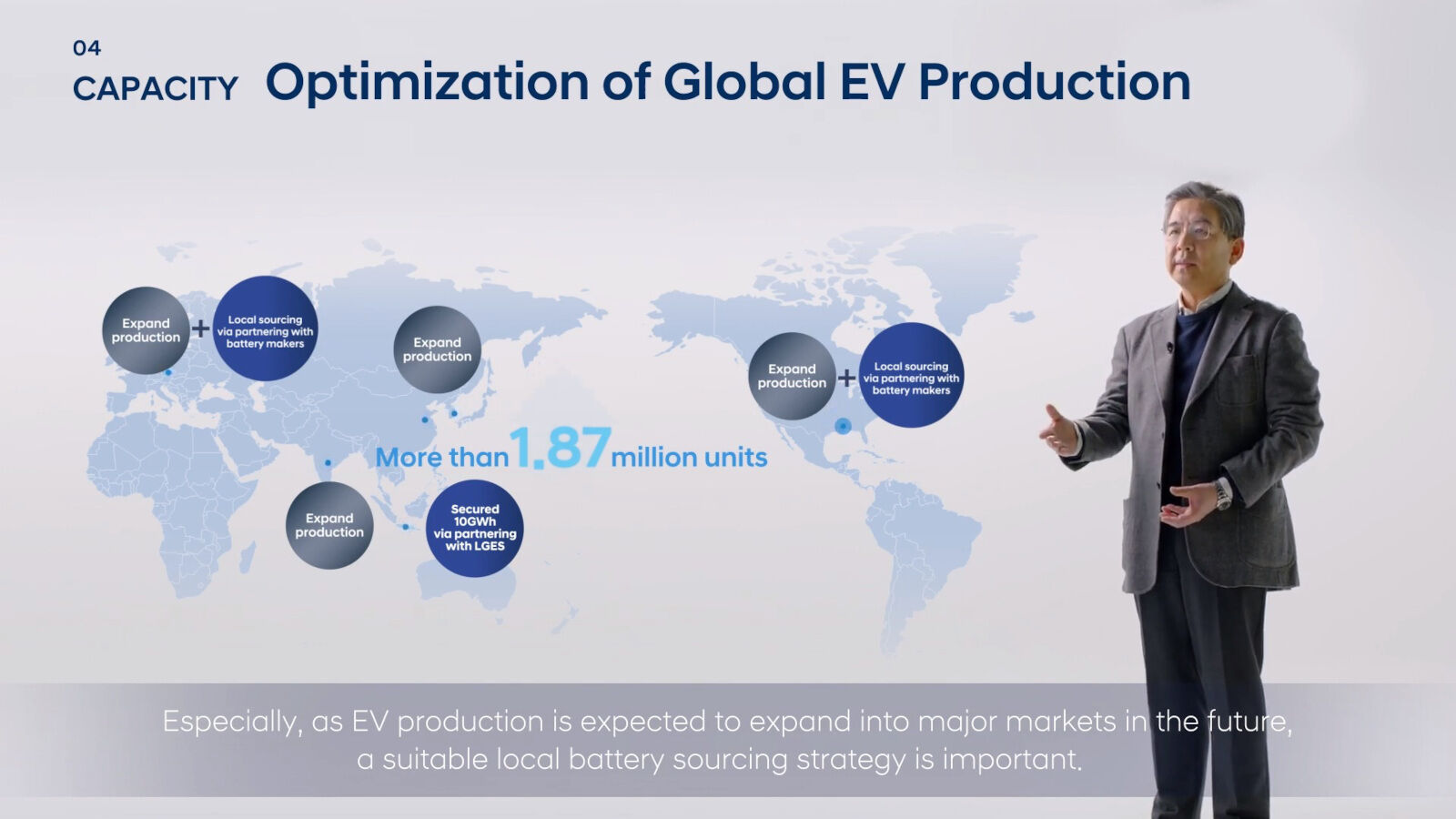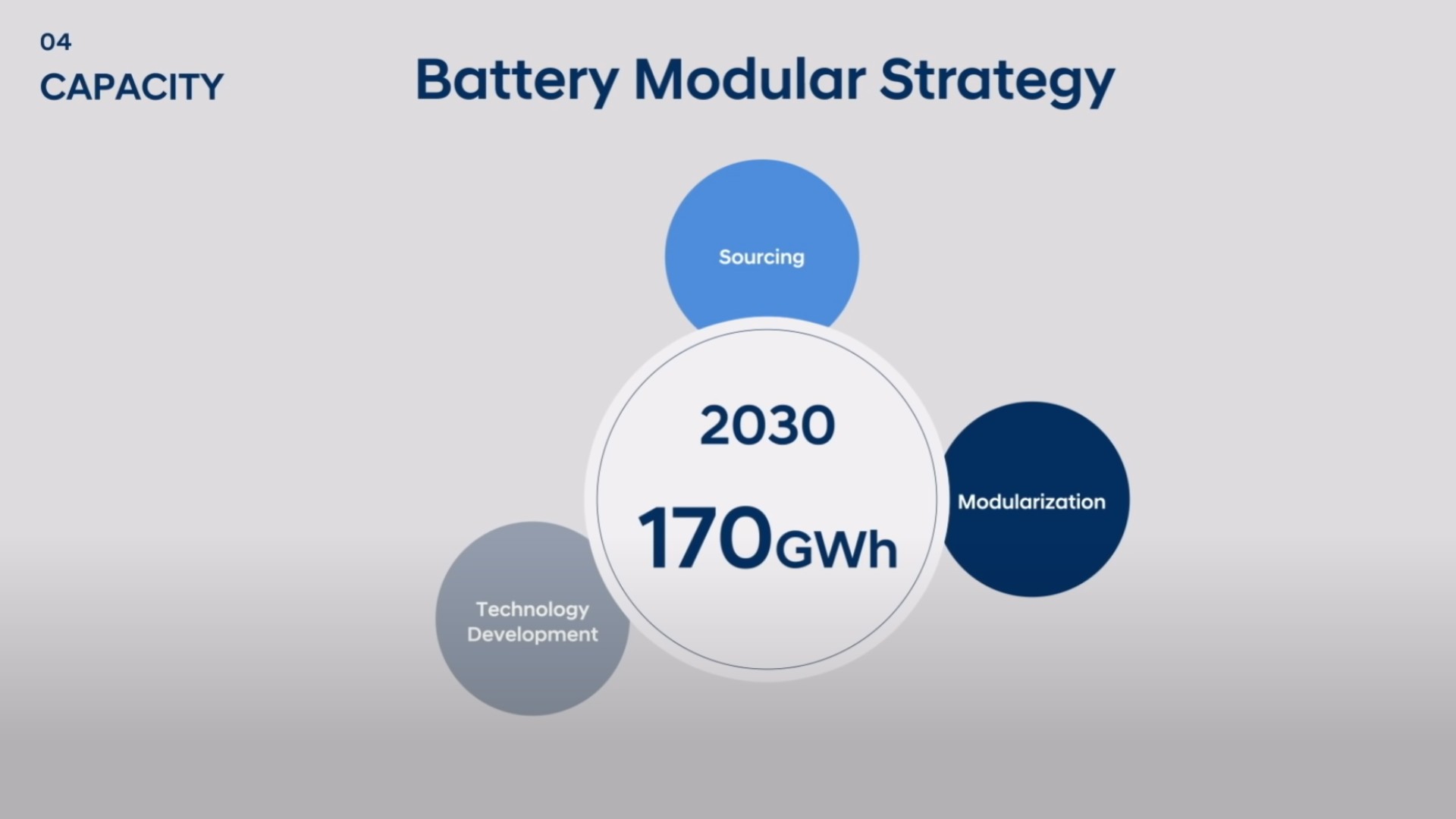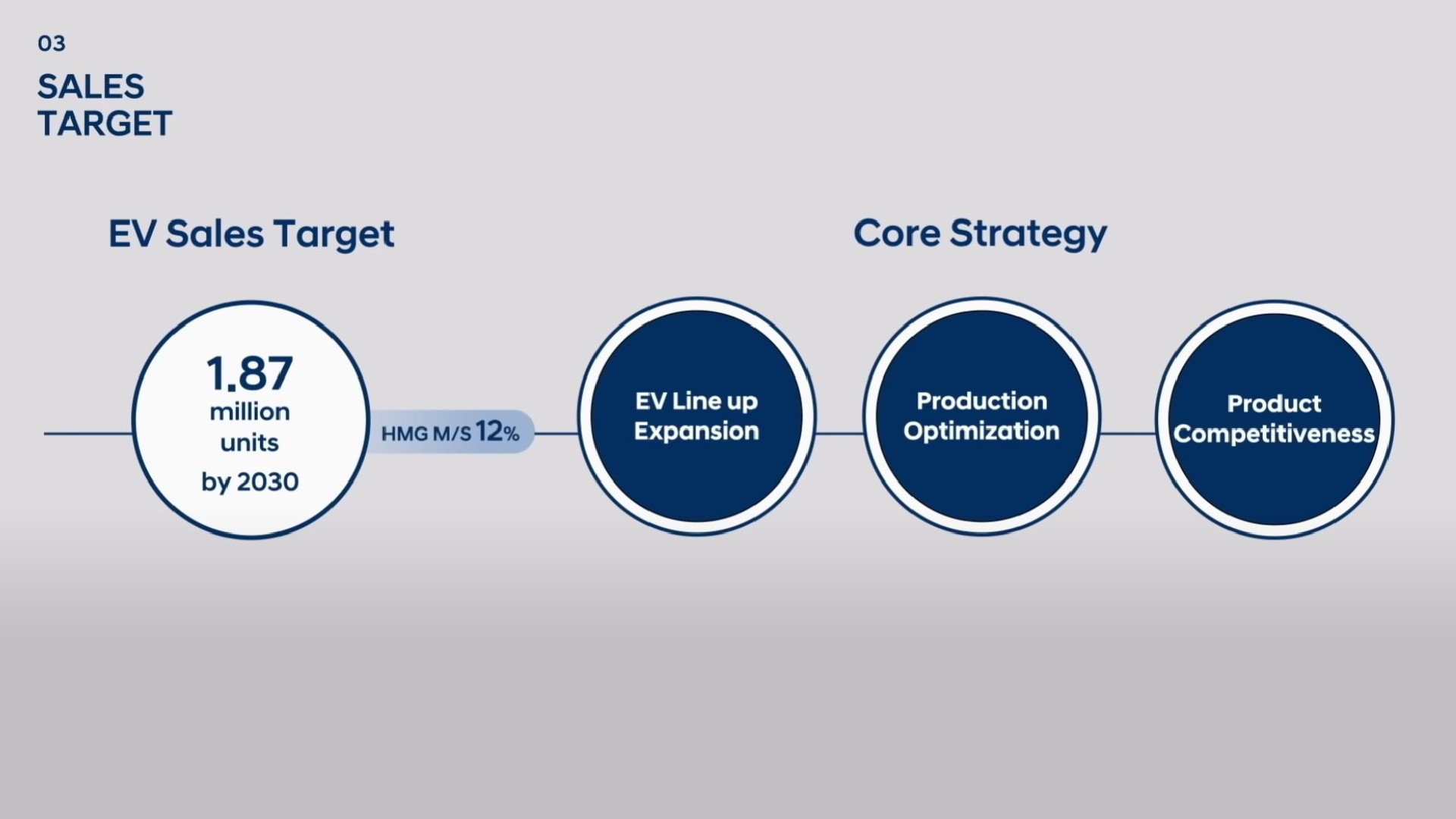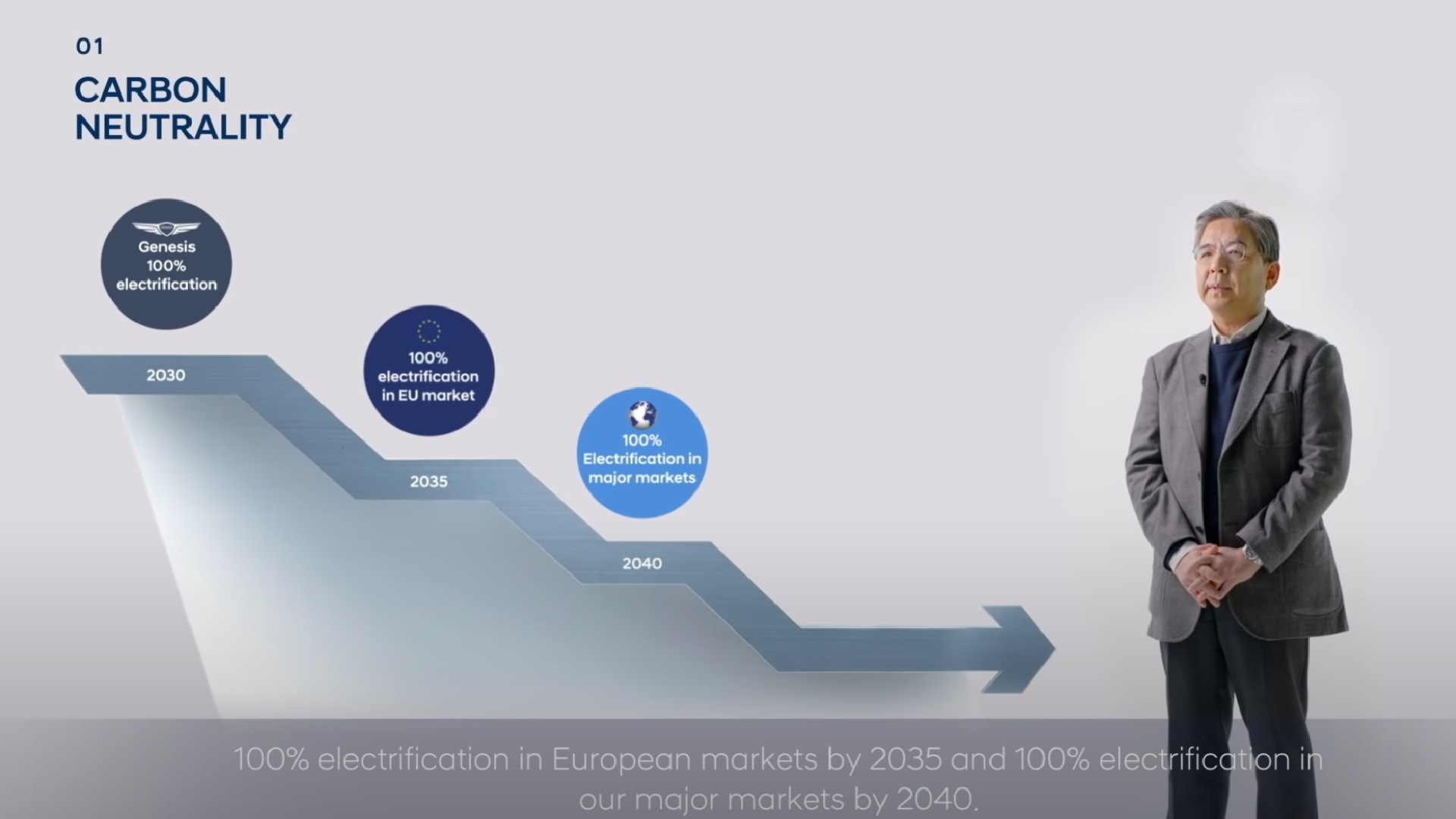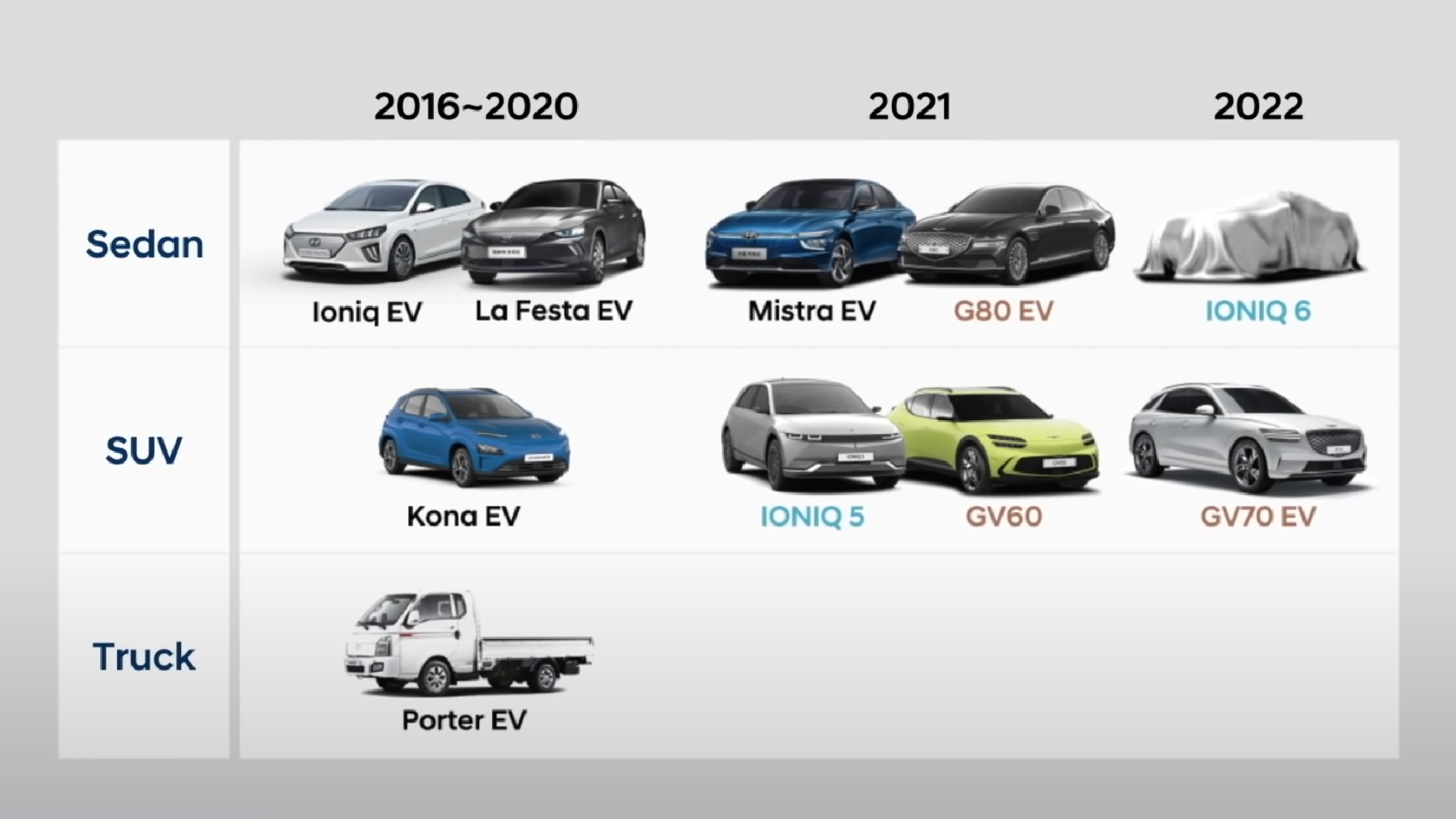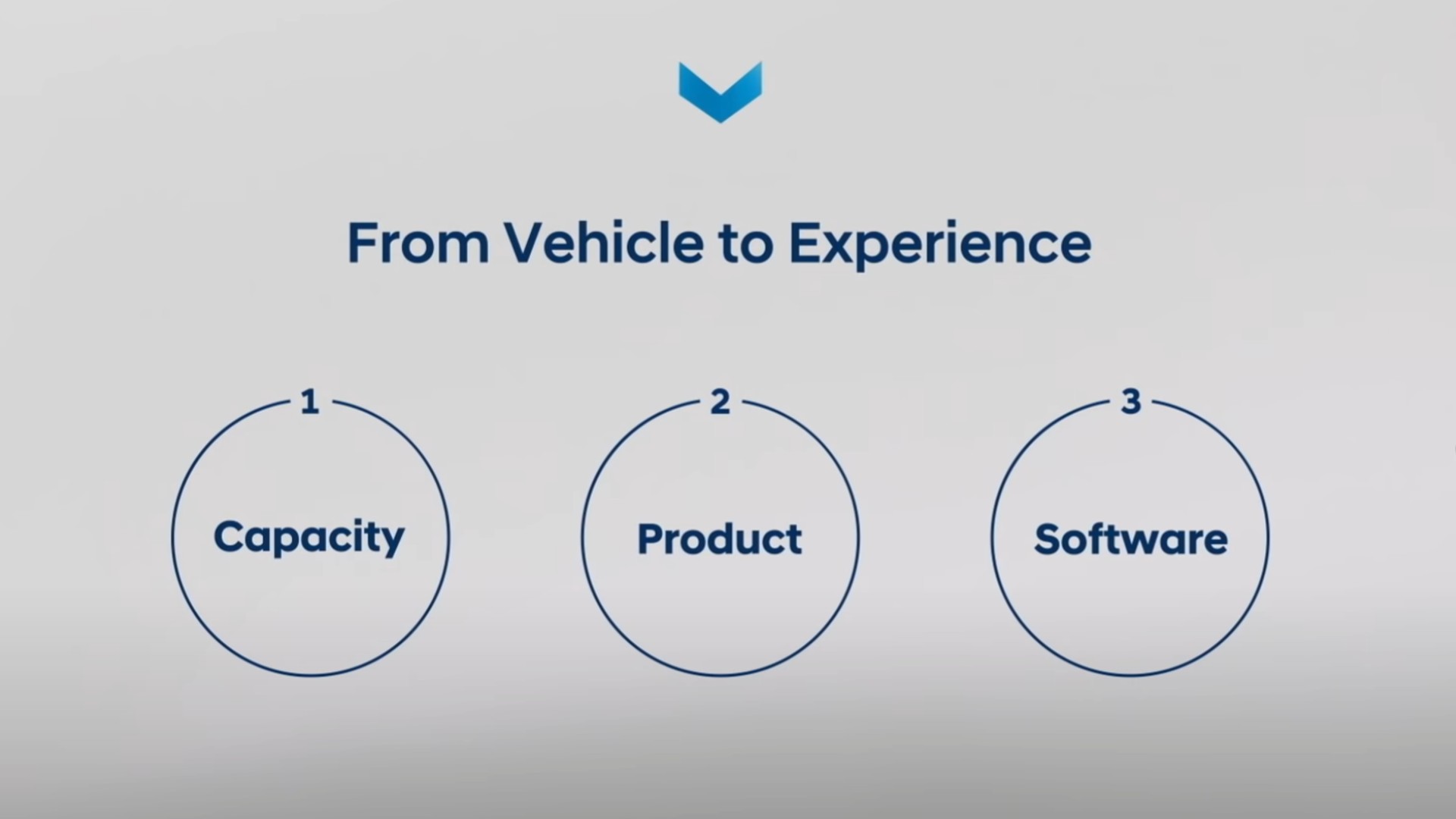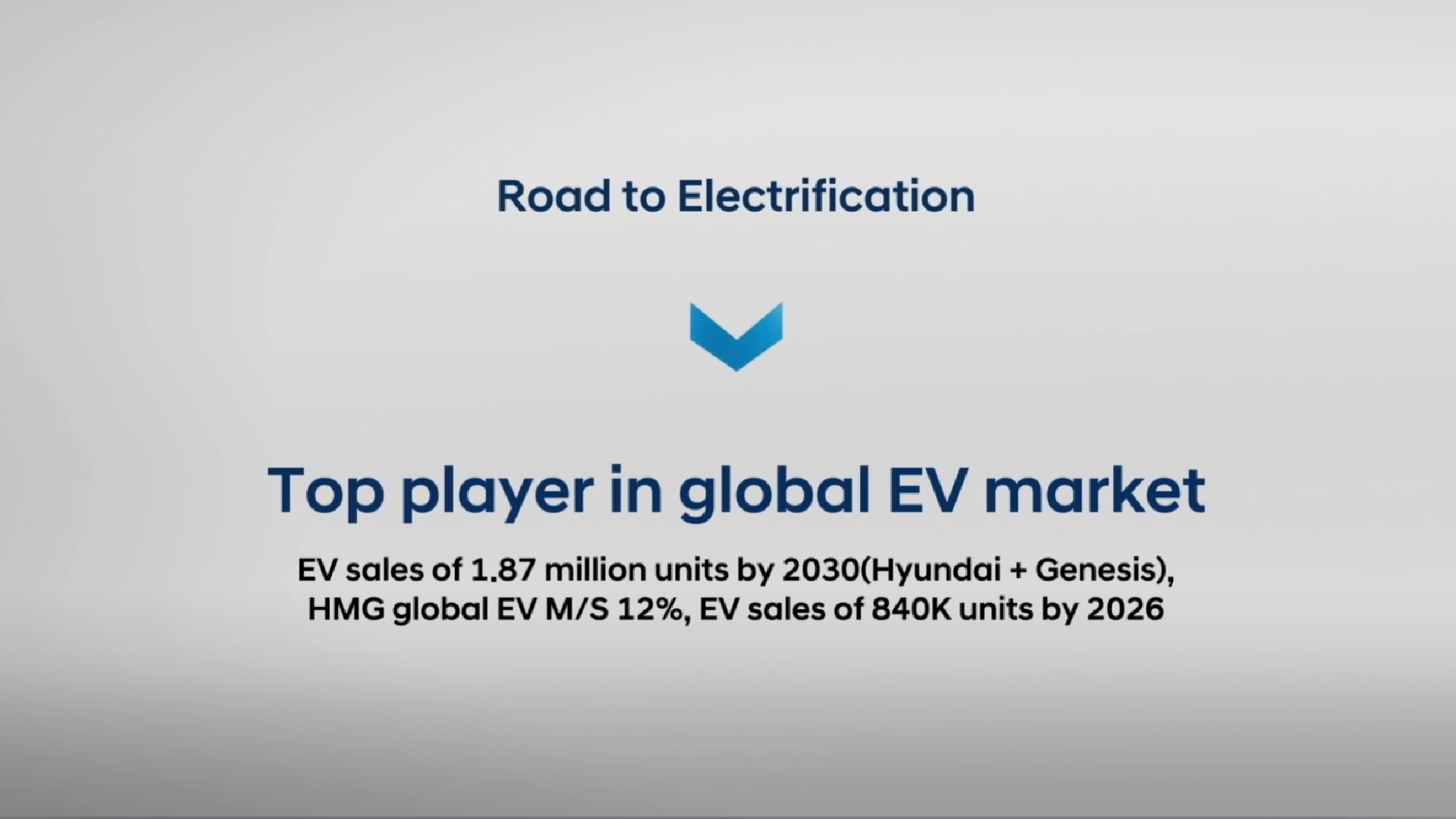As part of the 2022 CEO Investor Day, Hyundai Motor Group unveiled future plans for electrification, setting new targets for the coming years after a massive investment of 19.4 trillion won ($16.15 billion). The company announced a new platform for 2025 and the debut of 17 new electric models from Hyundai and Genesis by 2030, when it expects to have sold a total of 1.87 million EVs.
The new strategic plan has three key factors: increased production capacity, product competitiveness, and software competency. Hyundai wants to become a carbon-neutral brand by 2045. Prior to that, it will go EV-only in Europe by 2035 and in all major markets by 2040.
Read Also: Stellantis’ Ambitious Grand Plan For The Future Is Very Electric And Very Digital
Starting with the EV-dedicated platform, it is an evolution of the current E-GMP architecture used in the Hyundai Ioniq 5, Kia EV6, Genesis GV60. It will be called Integrated Modular Architecture (IMA) and from 2025 will underpin passenger cars and commercial vehicles. The new platform is expected to bring greater electric range compared to its predecessor (up to 50% more than the Ioniq 5), with the standardization of cell-to-pack battery modules and drivetrains helping reduce development costs.
Out of the 17 new electric models by 2030, 11 will come from Hyundai and six from Genesis. The new additions to the Hyundai EV lineup will be three sedans including the Ioniq 6, six SUVs including the Ioniq 7, one LCV, and one “new type model”. Genesis will launch two cars and four SUVs, with all of its new models being electric after 2025 on the road to becoming an EV-only brand by 2030.
Read Also: How Does The 2023 Genesis G90 Compare With Its Predecessors?
Jaehoon Chang, Hyundai CEO, decided to accelerate the shift to electrification despite the supply shortages and the pandemic, setting the goal of a 10 percent operating margin by 2030 up from today’s 5.7 percent. The new sales target of 1.87 million EVs by 2030 which is equivalent to a 7 percent market share, is following the previous goal of selling 560,000 EVs by 2025. At the same time Hyundai’s new production model for BEVs developed by the Hyundai Innovation Center in Singapore, is expected to increase efficiency, flexibility, and automation. The Korean brand will start producing EVs in other countries beyond its current factories in Korea and the Czech Republic.
In order to achieve its goal, Hyundai will secure 170 GWh of batteries until 2030. Starting from 2025 it will source half of the next-generation lithium batteries from other manufacturers, while forming strategic partnerships for improving their energy density and developing solid-state batteries.
Finally, Hyundai will be offering over-the-air software updates from late 2022, with all models getting OTA capability by 2025. Genesis will be the first brand of the group to offer Level 3 ADAS in G90 flagship from the second half of 2022, with Hyundai preparing an Ioniq 5 robotaxi for 2023 and other autonomous delivery vehicles. Eventually, the growing number of available services through software is expected to generate as much as 30 percent of Hyundai’s sales revenue.








